October is Latin American Heritage month in Canada so our monthly display features works from Latin American artists and research from the collection.
A very exciting announcement is that this monthly blogpost has an accompanying physical display! Our display area has officially been re-situated following our recent renovation. You can find it next to our circulation desk. However, I have loved the longer form blogposts that we have had the last few months so will be keeping that as we move back into our space.
A note about language – we are using Latinx throughout to describe the region as that is a gender inclusive term to describe people from Latin America. Latin America is a geographical term to describe the countries in Central and South America, and the Caribbean.
This display and blog post are by no means fully representative of all Latin America and its music but show snippets of the music of the region and unique finds from our collection.
The first area we’re focusing on is jazz. We have a number of works in our collection in the genre, including Latin America: the other jazz by Christopher Washburne, which chronicles the history and key moments of the genre. Tropical riffs: Latin America and the politics of jazz by Jason Borge illustrates how jazz has historically been a conduit for social issues to be debated. Reimagining Panama’s musical and cultural narratives of jazz: Panamanian suite by Patricia Zarate de Perez focuses specifically on how jazz evolved in Panama, in part because of its relationship with the US.
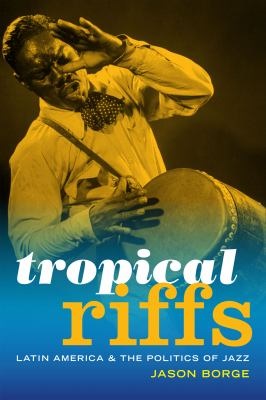


Jazz is far from the only genre we have featured. You can find a diverse range of music from Latin America within our collection. The Latin American art song: sounds of the imagined nations by Patricia Caicedo features some excellent examples of art song from the region as does her Latin American and Iberian art songs by women composers. Punk! : Las Américas edition, edited by Olga Rodríguez-Ulloa, Rodrigo Quijano, Shane Greene, details a history of Latin American punk music. Passport to hell: critical studies on Peruvian metal, edited by José Ignacio López Ramírez Gastón, features chapters from a variety of Peruvian scholars, detailing the world of Peruvian metal. Embodying sound: body, territory, and community in the music of Mare Advertencia and Cynthia Montaño by Pilar Villanueva-Martinez documents the use of rap to build community in Mexico and Colombia and seeks to understand the role of music in social movements. Music, Politics, and Social Movements in Latin America by Jonathan Ritter is a recent article which speaks to the role of protest songs in social movements throughout Latin America.
There are also considerations for what future or transnational Latinx music means. For thoughts on this see Diasporic Latinx futurisms by Taryne Jade Taylor in The New Routledge Companion to Science Fiction, which examines Latinx identities through science fiction. Musicians in transit: Argentina and the globalization of popular music by Matthew B. Karush details the lives of seven Argentinian musicians as they move across the globe. Latin America and the transports of opera: fragments of a transatlantic discourse by Roberto Ignacio Díaz traces operas’ literal and emotional journeys between Europe and Latin America. Experimentalisms in practice: music from Latin America, edited by Alejandro Madris, Eduardo Herrera, and Ana Alonso-Minutti, offers an alternative to traditional understandings of experimental music and recentres Latin America. Finally, Experimental sound creation, cyberfeminism and virtual communities in Latin America by Libertad Figueroa highlights an interview with Susan Campos-Fonseca about being a female composer in Latin America. Sounding Latin music, hearing the Americas by Jairo Moreno discusses the limitations of understanding Latin America through music in the modern era.
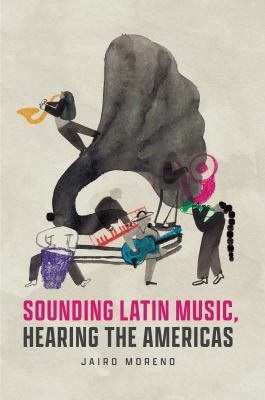

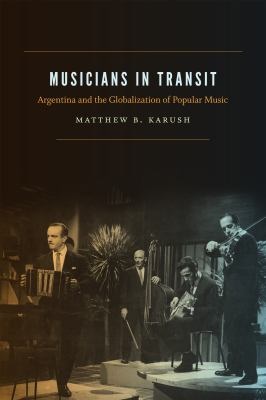
We also have a number of works relating to education. You can find this in Music education in the Caribbean and Latin America: a comprehensive guide, edited by Raymond Torres-Santos features stories from across the region. (Re)centering Indigenous Perspectives in Music Education in Latin America by Héctor Miguel Vázquez Córdoba pushes against the superiority of one type of knowledge over another and offers opportunities for disrupting Eurocentric music education practices.
We can also see the importance of performance and place in Latin American music. Music, dance, affect, and emotions in Latin America by Pablo Vila shows how music and dance are deeply connected to feeling. In On site, in sound: performance geographies in América Latina, Kirstie A. Dorr traces the geographies of these performances and how that shapes them. Dancehall: a reader on Jamaican music and culture, edited by Sonjah Stanley Niaah features a series of essays related to the proliferation of Jamaican popular music and how it has been performed across cultures. Rites, rights & rhythms: a genealogy of musical meaning in Colombia’s Black Pacific by Michael Birenbaum Quintero follows the history of music in Colombia and its impacts today.
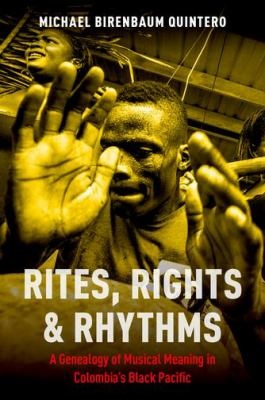

There are historical accounts of Latin American music as well. Gringos get rich: anti-Americanism in Chilean music by Eunice Rojas focuses on the ways that music has historically been used in Chile to promote anti-American rhetoric. Decolonial metal music in Latin America by Nelson Varas-Díaz showcases how colonialism has impacted both the past and present in Latin America and how this is challenged by heavy metal. In Coros y danzas : folk music and Spanish nationalism in the early Franco regime (1939-1953) by Daniel Jordan there is a section on the impact of Spanish rule in Latin America. Decoding “Despacito”: an oral history of Latin music by Leila Cobo tells the story of Latin hits from the last 50 years, featuring behind the scenes details of the songs. Cultural nationalism and ethnic music in Latin America, edited by William H. Beezley, showcases stories from across the region and how they intersect with national identity.

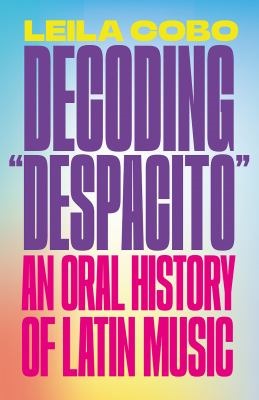
In addition to books, we have selected musical works from the collection for you to listen to or perform:
- A Peruvian sojourn with works by Clotilde Arias, Pablo Chávez Aguilar, Theodoro Valcarcel, Rodolfo Holzmann, Andrés Sás, Enrique Iturriaga, Celso Garrido-Lecca, Jorge Villavicencio Grossman, and Gabriela Lena Frank.
- Latin American music for two guitars with music by Astor Piazzolla, Leo Brouwer, Hermeto Pascoal, Alberto Ginastera, Chiquinha Gonzaga, and Anacleto de Medeiros.
- Sensemayá by Silvestre Revueltas
- Four piano works by Teresa Carreño
- Simples coletânea : for solo piano by Heitor Villa-Lobos
- Concerto per corde, op. 33 by Alberto Ginastera
- Canto de noche y llovizna by Astor Piazzolla
- Barroqueada by Miquel del Aguila
- Brazilian art song anthology, edited by Flavio Mello and Carol McDavit
Our search for composers was supported by this research guide, maintained by the Dr. Robert A. Henry Music Library at Prairie View A&M University.
Thank you for tuning into our blogpost this month! We encourage you to visit our in-person display the next time you are in the library.s